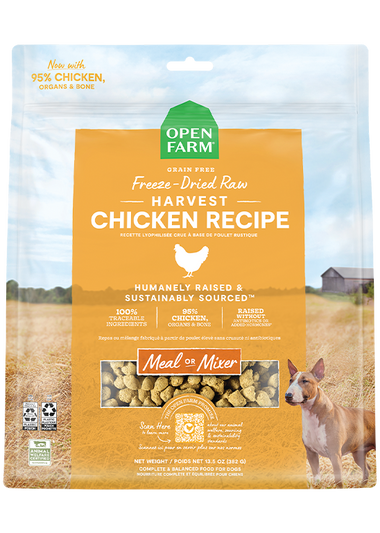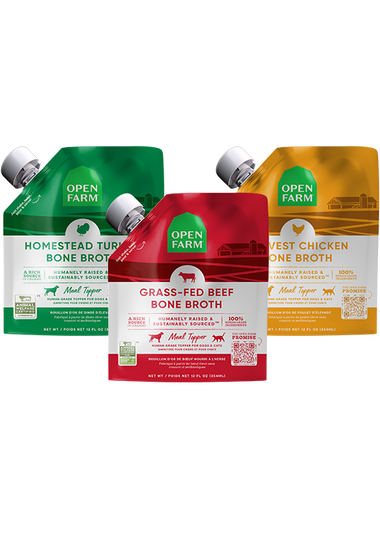When it comes to offering our furry companions something delicious and nutritious, you may wonder if a natural sweetener like honey could be a potential treat or if it is on the list of foods dogs can’t eat.
Honey is a superfood, rich in antioxidants and offers numerous benefits for canines. This golden liquid can increase your pup’s intake of essential vitamins and minerals. It may also help alleviate symptoms of allergies and skin issues while offering a quick energy boost when required. Discover why you should consider adding honey to your dog’s diet.
How is Honey Good for Dogs?
Honey can be a little treat with big benefits for your canine friend. Packed with vitamins and minerals, it can help beef up their immune system, giving it an extra boost when fighting off sickness.
If your dog suffers from environmental allergies, a bit of local honey might help. If your adventurous buddy gets a little scratch or scrape while exploring the great outdoors, you can dab a bit of honey on it. It’s got natural antibacterial properties that may help in healing minor wounds. But remember, while honey is beneficial, it’s also very high in sugar. So, it’s ideal as an occasional treat in small doses but not as a daily snack. If you give your pup honey, opt for raw, organic brands to ensure your dog benefits from the additional components in unprocessed honey, like propolis and pollen.
If you are a first-time dog owner, it’s good practice to consult a vet before introducing new foods into your dog’s diet to ensure they are safe and beneficial.
What Vitamins and Minerals Does Honey Contain That Benefits Dogs?
Honey contains various vitamins and minerals that can benefit dogs when incorporated into their diet. Some common beneficial nutrients found in honey include:
Riboflavin (Vitamin B2): Essential for healthy growth and muscle development, riboflavin helps maintain vibrant and healthy skin and coat in dogs.
Niacin (Vitamin B3): This nutrient can aid digestion, promoting a healthy gastrointestinal tract, which is vital for a dog’s overall well-being.
Vitamin B6: This vitamin is vital in supporting a dog’s nervous system and promoting proper brain development and function.
Vitamin C: While dogs naturally produce vitamin C in their liver, additional sources can help boost their immune system, especially as they age or are under stress.
Calcium: Important for strong bones and teeth, calcium supports a dog’s skeletal system, ensuring mobility and structural stability.
Magnesium: This mineral aids in absorbing vitamins and minerals in the body, promoting bone health and nerve function.
Potassium: A vital mineral that helps maintain hydration levels, support muscle function and ensure a healthy heart in dogs.
Always consult a veterinarian before introducing a new food to your dog’s diet and ensure that any honey given is in moderation to maintain a healthy and balanced diet.
Can Honey Be Bad for Dogs?
While honey can offer a range of benefits for dogs, it’s not without its downsides. The high sugar content in honey can lead to obesity and dental issues if given in large quantities or too frequently. Dogs with diabetes or breeds prone to obesity, like Labrador Retrievers and Bulldogs, should avoid honey to prevent exacerbating their condition.
Dogs can be allergic to various substances, including certain types of pollen found in honey. While some dogs might benefit from the pollen in local honey, helping build a tolerance to allergens, others might react negatively, showing signs of discomfort or allergic reactions, like swelling of the face, ears, lips, eyelids or earflaps and intense itching.
Honey is also unsuitable for puppies, as their immune systems are still developing and may be unable to handle the introduction of microbial organisms that can be present. This is particularly true for raw and unpasteurized honey, which may contain the bacteria Clostridium botulinum.
If you are considering adding honey to your dog’s diet, start with a small amount and monitor your dog for any adverse reactions. Consult with a veterinarian to understand the appropriate amount of honey that can be safely given to your dog.
How to Feed Your Dog Honey
While you can always let your pup lick some honey off a spoon, there are several other easy ways to incorporate this superfood into their diet:
Mix it with their regular food: Add a little honey to their usual meals to make it a tasty treat. Whether wet or dry food for dogs, a drizzle of honey can enhance the flavor and bring added health benefits.
Honey-infused treats: If you enjoy making homemade treats for your pup, adding a little honey can be an excellent alternative to sugar.
Freeze it in a dog toy: Choose a toy that is safe for freezing and suitable for your dog’s size, like a hollow Kong toy. Create a mix using honey and other dog-friendly ingredients, such as peanut butter. Add a sprinkle of freeze dried food for dogs to add some crunch and make it more engaging for your pet. Place the filled toy in a freezer-safe bag and freeze it overnight. Once frozen, give the toy to your dog to enjoy.
Add it to water or bone broth: You can give it directly or mix it with warm water to create a soothing drink or food topper for your pup. Mix it with warm bone broth for an even bigger boost, so your pup also gets the benefits of bone broth for dogs.
Sweet Rewards with a Touch of Caution
Introducing honey into your dog’s dietary routine can offer various health benefits, from enriching their diet with vitamins and minerals to potential allergy relief.
Using honey inventively, such as freezing it inside a dog toy or drizzling it over Open Farm RawMix dog food, can introduce variety into your dog’s diet while giving them a sweet reward. However, you should ensure you use honey judiciously, considering the high sugar content and the potential for allergies and consult your vet before adding honey to your pup’s diet.
Use honey as part of a well-rounded diet and explore the range of sustainable foods for dogs at Open Farm to give your pup the best nutrition available.
This article is meant only as an example meal with fully balanced nutrition, please reach out to our customer experience team if you have any questions about your pet’s own unique circumstances! To ensure these products are a good fit for your pup, we also recommend consulting your pup’s vet about any new supplement or diet changes, especially if there is a medical concern. They should be able to help as you and your vet know your pup’s medical history best!















